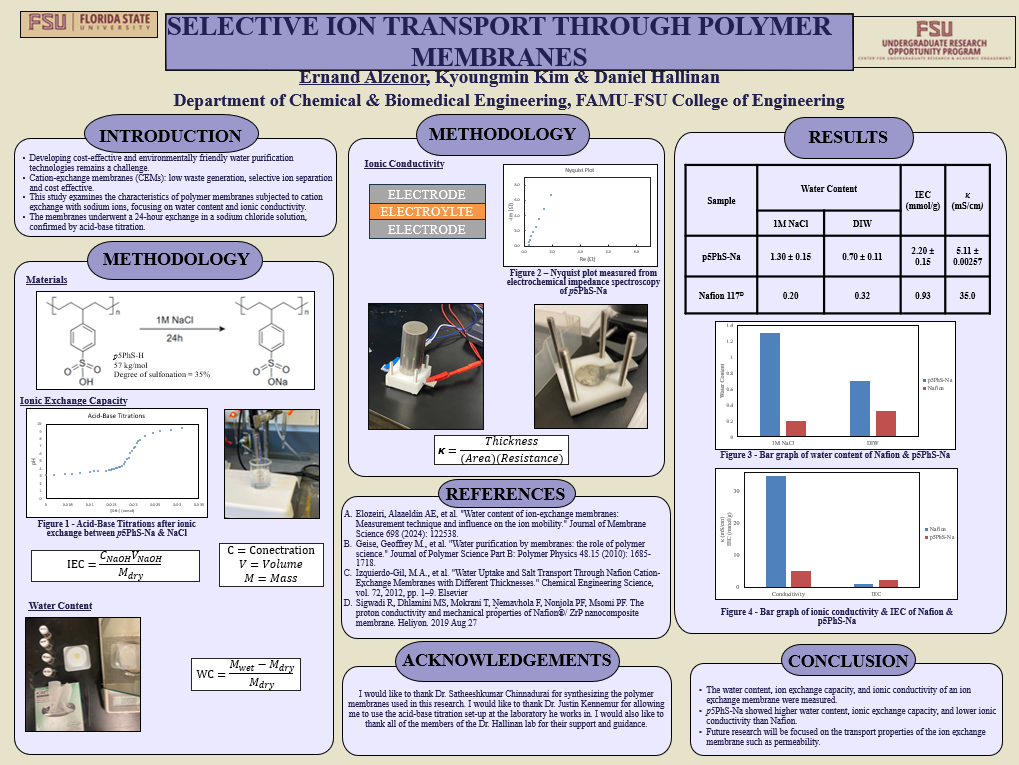Research Symposium
25th annual Undergraduate Research Symposium, April 1, 2025
Ernand Alzenor Poster Session 2: 10:45 am - 11:45 am/ Poster #107

BIO
Hello, my name is Ernand Alzenor. I was born and raised in Boca Raton, Florida. Currently, I have a great interest in polymer research. I like the potential of polymers in fields like water purification and materials science. My goal is to obtain a master’s degree in chemical engineering and pursue a career as a research scientist, contributing to advancements in sustainable materials and technology. Beyond academics, I enjoy playing basketball and chess in my free time, finding a balance between physical activity and strategic thinking. I aim to make meaningful contributions to scientific research in the future.
Selective Ion Transport Through Polymer Membranes
Authors: Ernand Alzenor, Kyoungmin KimStudent Major: Chemical Engineering
Mentor: Kyoungmin Kim
Mentor's Department: Biomedical and Chemical Engineering Mentor's College: FAMU-FSU College Of Engineering Co-Presenters:
Abstract
Developing cost-effective and eco-friendly water purification technologies remains challenging, especially in selectively separating metal species for water treatment and energy production. Effective separation is crucial for preserving metal resources, recovering valuable metals, and reducing pollution. Traditional methods like adsorption, precipitation, and extraction produce excessive sludge and sometimes fail to achieve complete metal removal. Cation exchange membranes (CEMs) provide a more efficient and sustainable alternative due to their high ion selectivity, allowing only positively charged ions to pass while blocking anions. Their advantages include high ionic conductivity, chemical stability, durability, and thermal resistance. This study investigates a polymer membrane subjected to cation exchange with sodium ions, focusing on water uptake and ionic conductivity. The exchange occurred in a sodium chloride solution for 24 hours and was confirmed by acid-base titration. Based on literature higher hydration is generally expected to enhance conductivity, the results agreed with past literature that greater hydration led to better electrochemical performance. The ionic charge density of sodium is one because sodium is a monovalent atom. The ionic charge density indicates sodium CEMs will have high ionic mobility and low hydration. A limitation of this study was membrane availability; both samples deteriorated from prolonged hydration, preventing permeability testing. Future work will focus on measuring ion permeability in CEMs to better understand ion transport mechanisms.
Keywords: Polymer Material Science

